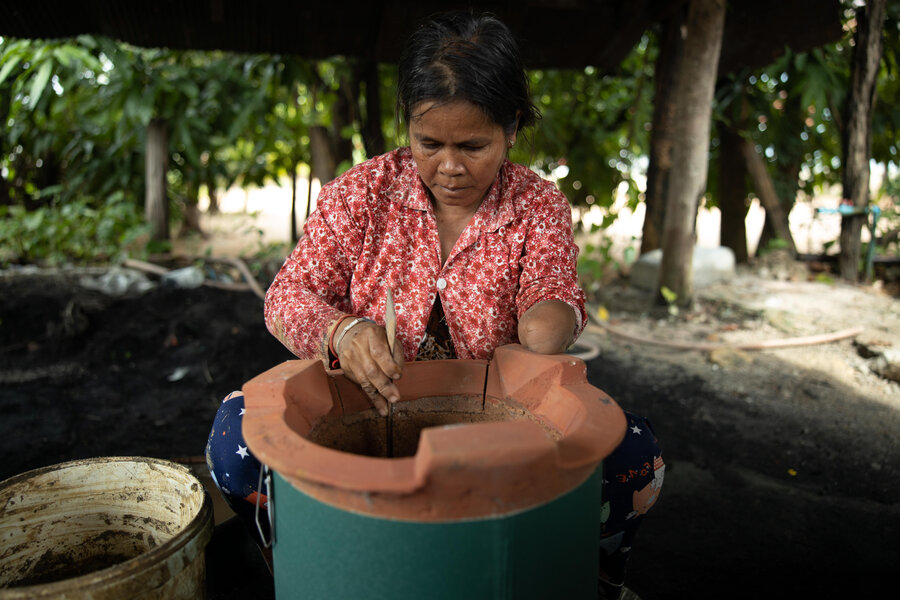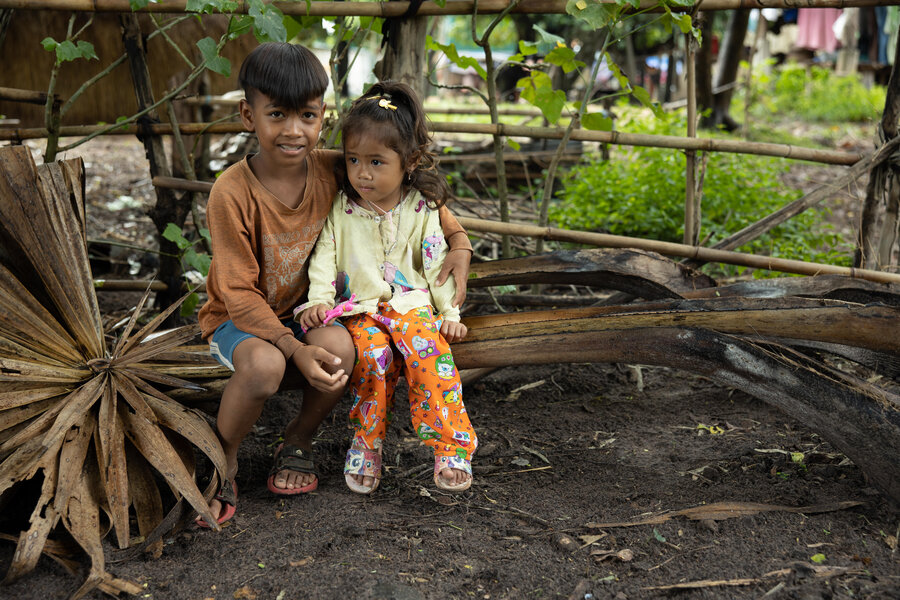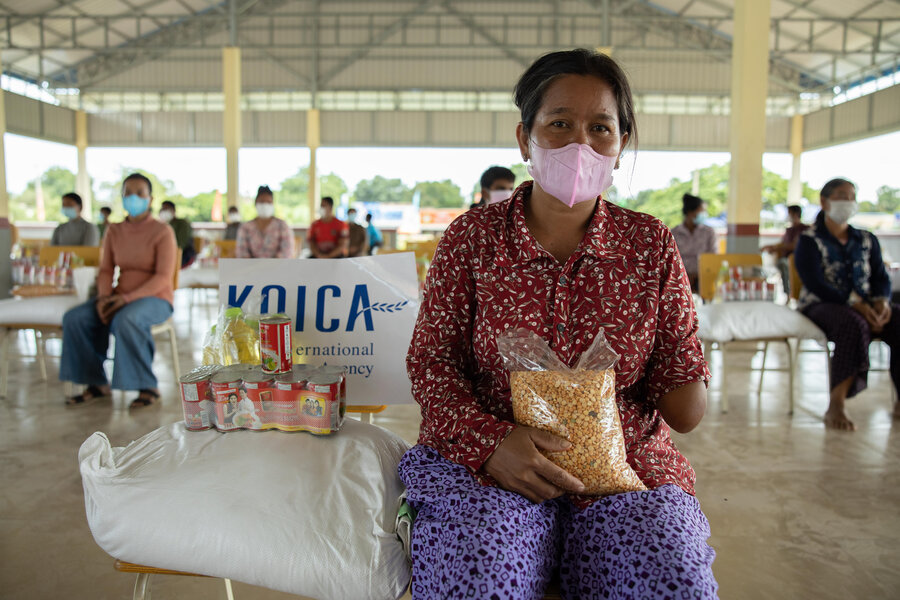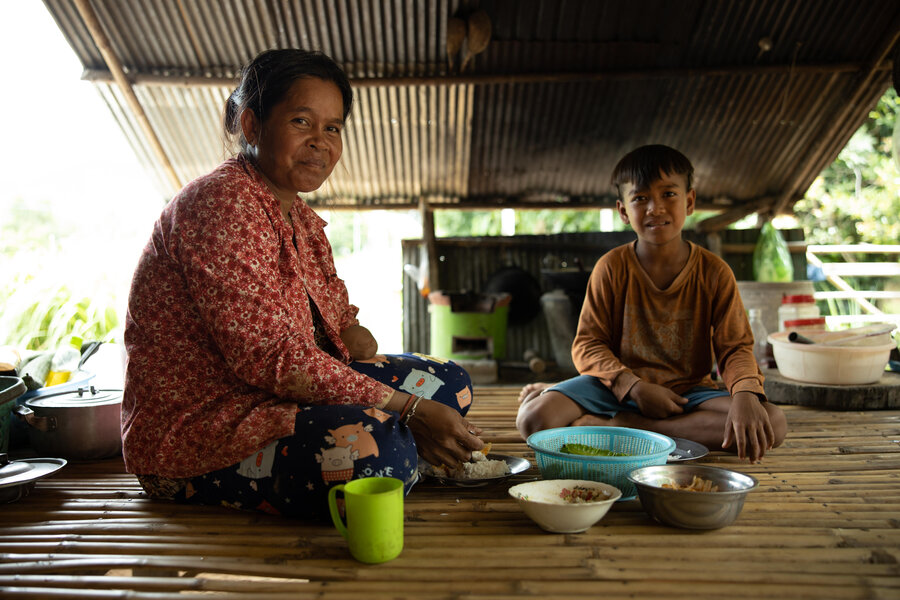People with disabilities day: How take-home meals are helping parents when schools are closed

“School meals were one of the reasons I would send my children to school,” says Nach, a potter and rice farmer in rural Kampong Chhnang province in Cambodia. “Each morning, my kids would pack their own dish and spoon so they could enjoy their breakfast at school. Sometimes, they even bring back a little for me!”
People with disabilities day: ‘I want to become an engineer’
Knowing her children were receiving school meals relieved some of Nach’s financial stress and also made her more confident that they were getting the nutrition they needed to learn effectively. “School meals are important for children’s development and help them study better,” she says.
Her 11-year-old son Mouy Mai, has fond memories of his morning routine back when schools were still open – evidence of the importance of the school feeding programme, supported by Cambodia’s Ministry of Education, the World Food Programme (WFP) and the Korean International Co-operation Agency (KOICA).

“First, I would help do some cleaning in the classroom once I got to the school, then I’d have breakfast with my friends, and then say hello to my teacher,” he says, shyly, while sitting in his small family home with his mother and little sister. “I can’t wait to go back to school and learn again and meet my friends.”
School closures are just one of many ways in which COVID has adversely affected the family. “My income dropped from 20,000 riels a day to only 5,000 riels [around US$1],” says Nach. “That’s not enough to support us, I have many children.”
Nach lost her lower arm to cancer 20 years ago: “Making a living was much easier before that.” She says that it can be a struggle to feed her family sometimes, especially now that her school-age children don’t get at least one meal a day at school.

Photo: WFP/Arete/ Lopez
It was with such families in mind that WFP approached the Ministry of Education and KOICA when it was confirmed that schools would close for a long period because of COVID safety precautions. A programme of take-home rations would ensure that families would continue to receive essential food supplies - including 25kg of rice, canned fish, beans and vegetable oil - to use in their own homes, even though their children could not attend school. There have now been five rounds of take-home ration distributions. With the recent re-opening of schools in September, they may well be the last.

Nach says: “Without this extra support, I would have struggled a lot as I have so many family members … it lowers our expenses, and I can buy vegetables and cook good food for my children.”
She welcomes the re-opening of schools. “I want my kids to go to school regularly. I hope they will be well-educated and achieve what they want.”
